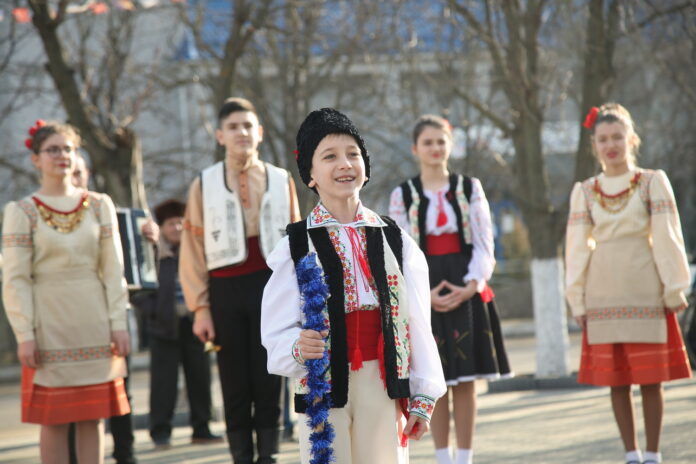The Gagauz have a special reverence for the Christmas celebrations’ tradition.
On January 7, when Christmas is celebrated based on the old-style calendar, the Gagauz go caroling, using the beautiful traditions of Moldovans and the Balkan Bulgarians.
Carol singing in Gagauzia is done on Christmas Eve and it is called Kolada gezmää, Koladeli. The young people start the preparations for this celebration much in advance. During the Christmas fasting period Kolada orucu, the young people come together in a house where a man, respected in that community, teaches them the carols Kolada çalmaa. During the carol singing that man will play the role of a “tsar”. The head of the “tsar” is decorated with circles resembling a crown feneț.
The other carol-singers will wear festive clothes. They will wear flowers on their hats KitKa. Arriving at a household, the head of the band will call the home-keeper outside asking its permission to start caroling. The family will listen to the carols on the threshold of the house and will traditionally offer bread and wine to the carol singers.
FOR THE MOST IMPORTANT NEWS, FOLLOW US ON TWITTER!
The carol singers are also traditionally rewarded with a round bread and a lit candle, as well as with money. Sometimes they may also get meat, boiled chicken or sweets.
There are special f carols – the religious ones – proclaiming the birth of the son of God and the inception of a new beginning.
The Gagauz also sing carols on New Year’s Eve and on January 13, Hêy-hêy gezmää. The children are the first to start caroling through the villages in the morning, then the adolescents follow and the adults close the day. On January 14, in the morning, St. Vasili Day, the children go from door to door with Sorcova – knocking a fruit tree branch on the shoulders of the household members wishing them prosperity, health and harvest in the new year.
The Gagauz believe that carol singing helps the farmers get a rich harvest in the fields, in the orchards and in the stables, as well as goof health for the families. That is why in the past the carol singers tried to visit all the houses except for the households in mourning. Another belief was that the carol singers would help keep the bad spirits out of the village. But beyond all these beliefs, the carols mainly bring joy to everyone.
It is a merger of the Bulgarian customs and rituals, practiced in the Balkans, with the local Moldovan traditions. At Christmas, people go from home to home singing songs and carols. The carols are dedicated to the householder, to the girls to be married and to the children of the family. Such carols may be read as prayers for harvest and fertility.
Eudochia Soroceanu, researcher from the Academy of Science of Moldova.


